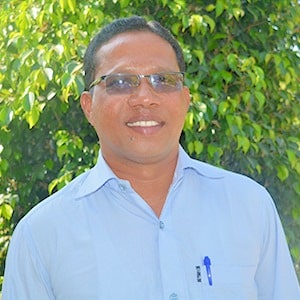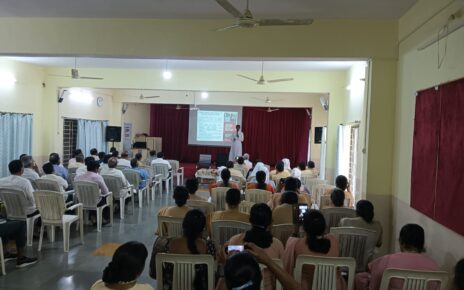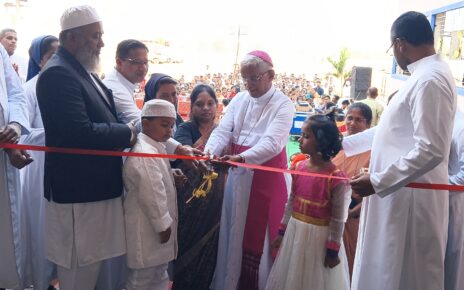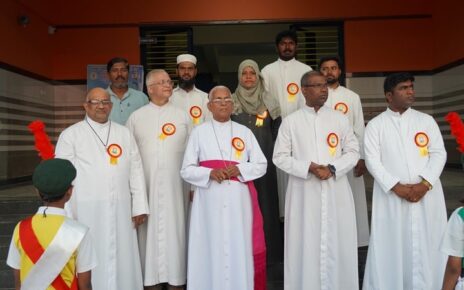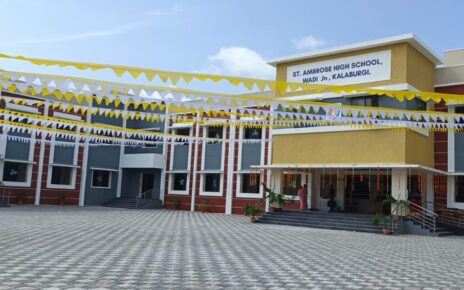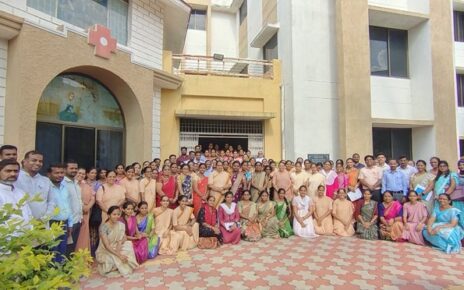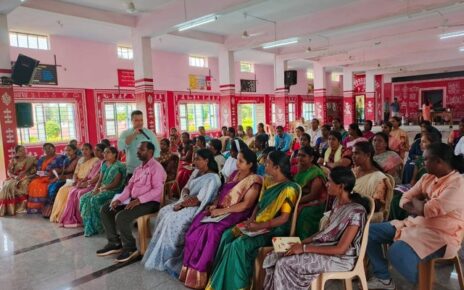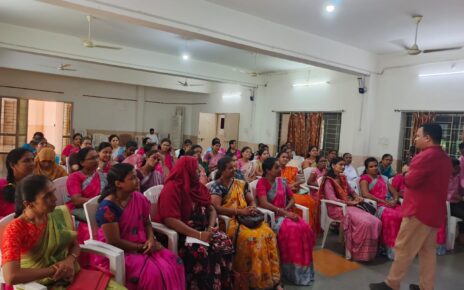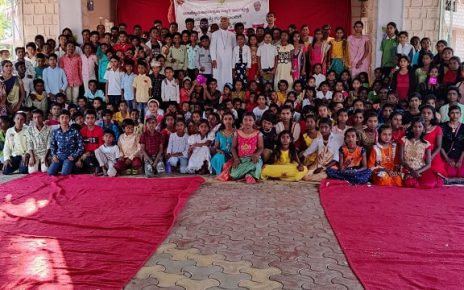COMMISSION FOR EDUCATION
Secretary: Fr Stephen P. Veigas Gulbarga
Joint Secretary: Fr Laurence D’almida CSC Afzalpur.
Core Group: Sr Lynette CSST Shahabad, Sr Thekla Mary SSA Wadi, Fr Anthony David Kamalnagar, Fr Wilson Fernandes Bidar,Fr Vincent Pereira Gulbarga,Mr Rayappa Reddy Gulbarga.
Introduction
Catholic Education is integral to the mission of the Church in Her proclamation of the Good News. Our Educational Institutions must be, therefore, a place to encounter the living God who in Jesus Christ reveals his transforming love and truth. This relationship should elicit in all members of the College/school community a desire to grow in knowledge and understanding of Christ and His teachings. Far from separating reason, study of culture or science from faith, this Catholic humanism allows faith to illuminate reason, enliven culture and give meaning to all learning.
Pope Francis says: “Catholic Education is one of the greatest challenges for the Church, which is committed to carrying out the New Evangelization, in a historic and cultural context that is in constant transformation.” According to him Education is a path that leads to the three languages that a mature person needs to know: the language of the mind, the language of the heart, and the language of the hands. All three must be in harmony. In other words, education involves in what you feel and do, listen to what you think and do, and do well what you think and do.
Pope Francis proposed three aspects for consideration: the value of dialogue in education, the qualified preparation of formators and the responsibility of our institutions to express the living presence of the Gospel in the fields of education, science and culture.
Dialogue: Our Catholic schools and universities effectively are attended by many students who are not Christian or do not believe in God. Catholic educational institutions offer to all an approach to education that has as its aim the full development of the person, which responds to the right of every individual to access knowledge.
Preparing Formators(teachers): Education in our times is guided by a changing generation and that every educator and the Church as a whole is an educating mother, is required to change and communicate this with the young.
Responsibility of educational institutions: Our responsibility is to express the living presence of the Gospel in the field of education, science and culture.
The Church in India and in particular in Karnataka has shown phenomenal growth in education over the last decade both in quality and number. Our catholic education is a powerful instrument in the spread of Gospel values and in the proclamation of the kingdom. At the same time the church is facing several problems from the State, Political circle, Parents and students. We as educators have to be alert towards these situations and respond to them.
The objectives of Educational Institutions are: to provide an environment in which students are enabled to deepen their relationship with God; to foster an academic culture aimed at the pursuit of truth; and to actively promote growth in virtue.
The COVID 19 pandemic has led to the global lockdown of education institutions and is going to cause major interruption in students ‘learning; disruptions in internal assessments; and the cancellation of public assessments for qualifications or their replacement by an inferior alternative. This pandemic is first and foremost a health crisis. The severe short-term disruption is felt by many families around the world: home schooling is not only a massive shock to parents’ productivity, but also to children’s social life and learning. Teaching is moving online, on an untested and unprecedented scale. Student assessments are also moving online, with a lot of trial and error and uncertainty for everyone. Importantly, these interruptions will not just be a short-term issue, but can also have long-term consequences for the affected cohorts and are likely to increase inequality.
VISION: Our educational institutions are centers of ‘Good News’ for all, especially the poor and the marginalized.
MISSION: Empowerment and liberation of every human being, especially the poor and the marginalized (the dalit community, the migrants and the tribal groups) through holistic education centered on Gospel values (love, compassion and justice) leading to the transformation of self and society.
GOALS
Goal I: Integral growth of each person in his/ her uniqueness. Goal II: Students are persons for others /other centered. Goal III: Implementing National Education Policy 2020.
Goal I: Integral growth of each person in his / her uniqueness.
Objective 1: By June 2024, faith content is regularly imparted to the Catholic Teachers /Children as prescribed by the Commission for Catechetics
Indicators
- Selected Catholic teachers are trained in catechesis annually. Every year at least two teachers are deputed from each school to be trained in catechetical programmes.
- Teachers are provided with graded catechism text books and are required to provide work-plan for each class.
- Regular faith classes are held and examinations are conducted.
- Confession & Eucharist is celebrated once a month for Catholic Students and on Patrons’ / Founders’ Day.
Activities:
- The commission along with the commission for Catechetics will organize Catechetical Training programs for all the Catholic staff.
- Finalizing and Providing the Resource materials for the students in time to all the schools.
- School Time table gives time for catechism, value education and other spiritual exercises
Objective 2: By 2024, every student from our institutions is spiritually motivated to worship God.
Indicators
- Trained and committed teachers are available to conduct prayer services.
- Quotations from scriptures and religious symbols reflecting spiritual themes are displayed on the Notice Board.
- Regular prayer services / a Prayer Day are conducted in all the Schools.
- Morning prayers are conducted during the daily school assembly.
Activity:
- Training Teachers to organize Inter-religious prayer services on different festivals and National fests.
- Schools to display regularly(weekly basis) Inspiring & Universal thoughts from different religions
Objective 3: The competencies of the students are enhanced continuously according to their aptitude and talents.
Indicators:
- Talent profile of every student is created every year and schools give special attention to the student’s physical, intellectual and mental support.
- Annual medical test is conducted for all students on the commencement of the academic year.
- All schools provide counselling help as and when required.
- Schools have YSM, Health Clubs, NCC, Scouts & Guides, Cubs & Bul-buls, Eco Club, Science & Language Clubs, Peace Club, Child Rights Club, School Parliament and regular sports and games activities.
- Special trainings of different soft / Inter personal skills are provided in the school.
- Competent librarians / teachers are appointed to take care of the library, computer rooms and laboratories. Students are encouraged to read and utilize computer facilities.
- Teachers are given responsibility, keeping in mind the Vision and Mission of the All India Catholic Education Policy.
Activities
- Organising Inter-school competitions (Pratibhostava), Inter-hostel competitions and encouraging students to participate in Pratibhakaranji.
- Refresher courses and Annual Orientation programs for the teachers.
Objective 4: Students are constantly motivated and are conserving natural resources.
Indicators:
- Environment Awareness Day is observed every year. Vanamahotsva Day is celebrated to plant trees in the campus.
- School Eco Club prepares charts, and organizes talks during assembly and other times on destruction of environment on the campus.
- Campus is kept green and clean.
- To use the resources properly and economically without wastages in food and guiding to conserving water in our schools. Care is taken to make students use the food materials cautiously without any wastage.
- Facilities are organized in schools to water conservation and rain water harvesting.
- Awareness on Natural Resources conservation is given (Jal, Jameen, Jungle, Janwar, Jan)
Activities:
- To conduct competitions deanery level on environment topics.
Objective 5: By 2024, students know the proper use of mobiles and use them gainfully.
Indicators:
- The teachers / schools are exposed to internet and media and they are to keep special watch on students regarding the use of electronic media.
- Proper discipline is maintained in the schools concerning the use of mobiles.
Activities:
- To organize the seminar on Media ethics / Sex education / with the collaboration of Commission for Social Communication& Health.
Objective 6: Students from remote areas enjoy quality education having home study facility in the vicinity of 20%of our schools.
Indicators:
- Hostel facilities for the marginalized are provided by the Diocese and Religious Congregations in rural areas.
- Seats with concession are made available in the hostels for students from economic and socially backward sections.
Activities:
- To plan for a Hostel to train exceptionally talented High school students for targeted careers.
Objective 7: By 2024, economically and socially marginalized students of the neighborhood are admitted in our schools and colleges.
Indicators:
- Those who apply for admission in our schools are categorized according to their financial background and are given special attention.
- Seats are reserved in the school for the marginalized, SC / ST and other groups as per the directives.
- Parents and Alumni, along with the well-wishers are contributing generously to build a Corpus Fund towards scholarships.
Activities:
- To identify and propose a set percentage of seats for the marginalized as per the catholic education policy.
- Formation of a Alumini Association at every School
Goal II: Students are persons for others / other centered.
Objective 1: By 2024 at least 3-4teachers in all the schools are given basic training in student counseling.
Indicators:
- Teachers are deputed to attend Refresher Courses.
- Trained Counsellors are conducting counselling sessions to students.
Activities:
- To conduct Student Counseling seminars twice a year.
Goal III: Implementing National Education Policy 2020.
Objective 1: Knowledge on Fundamental Rights and Constitution of India is imparted in our educational institutions furthering the protection of Human Rights and Child Rights.
Indicators:
- Regular classes are held for the High School and above on Fundamental Rights, Human Rights and Child Rights with special programme on the Constitution of India.
- Students become aware of their Rights and Responsibilities as citizens of India.
- The schools have made efforts to bring resource persons whenever possible from Child Welfare and Women’s welfare Commissions.
- POCSO Committees are established in all the schools.
Activities:
- Commission will update information on NEP implementation by the Govt.
- Provide Resource materials as and when required.
- To monitor the implementation of Dept Guidelines w.r.t. Posco …. Etc. in all the schools.
Objective 2: Respect Constitutional Categories such as Minority Groups, SC/ST and Backward Classes.
Indicators
- Conducting awareness programmes on Constitutional Categories like Minority Groups, SC/ST, backward classes
- The management defends the rights of minorities.
Objective 3 (Ref. Goal-1 obj-2…): Value Education classes are conducted every year imparting life values to our students.
Objective 4: Every student in our school is assisted to pursue education at least up to 12 Standard.
Indicators:
- Keeping track of students, the dropouts from schools and bringing them back into the mainstream.
- Introducing new methods of formal and non-formal teaching through community colleges and providing financial assistance / residential help wherever necessary.
Strategies:
- Establishing necessary structures.
- Preferential Option for the poor.
- Regular enhancing the competencies of the staff & Students.
- Activities on social concerns are performed by the students.
- Every school has formed POCSO Committee.
- Conducting regular prayers at the assembly / beginning of the classes, holding prayer services on special occasions. The school conducts regular A day of Prayer.
- Environment conservation is the priority in the schools.
- The school campus is kept clean and the children’s hygiene is maintained.
- Training our teachers in the rich heritage of Indian Constitution and providing platform for them to address students regularly in the classroom and during school assembly.
- Providing students with materials on Fundamental Rights and Constitution.
- Building rapport with Education Department and Government Authorities regarding the implementation of NEP 2020.
STRENGTHS 1. Secular / Christian 2. Quality 3. For Poor 4. Good Opinion 5. Moderate Fee 6. Dedicated Team 7. Good Infrastructure | WEAKNESS 1. Not able to spend to match competitive standard / staff 2. Low salaries 3. Not able to pressurize 4. Lack of Public contact 5. Prejudice & Pressure from Dept / People 6. Bribe 7. Less focus on non-academic areas |
OPPORTUNITIES 1. Scope for expansion in rural 2. Scope for Higher Eduction (Deg, CBSE ..) 3. Means for Evangelization 4. Scope for Career advance programs | THREATS 1. COVID / PANDEMIC 2. NEP & Other Laws 3. Fundamentalism amg staff and children 4. High handedness of Parents 5. unable to control & monitor Technology misuse 6. Non-cooption of Govt Officials 7. Increased competitors |


